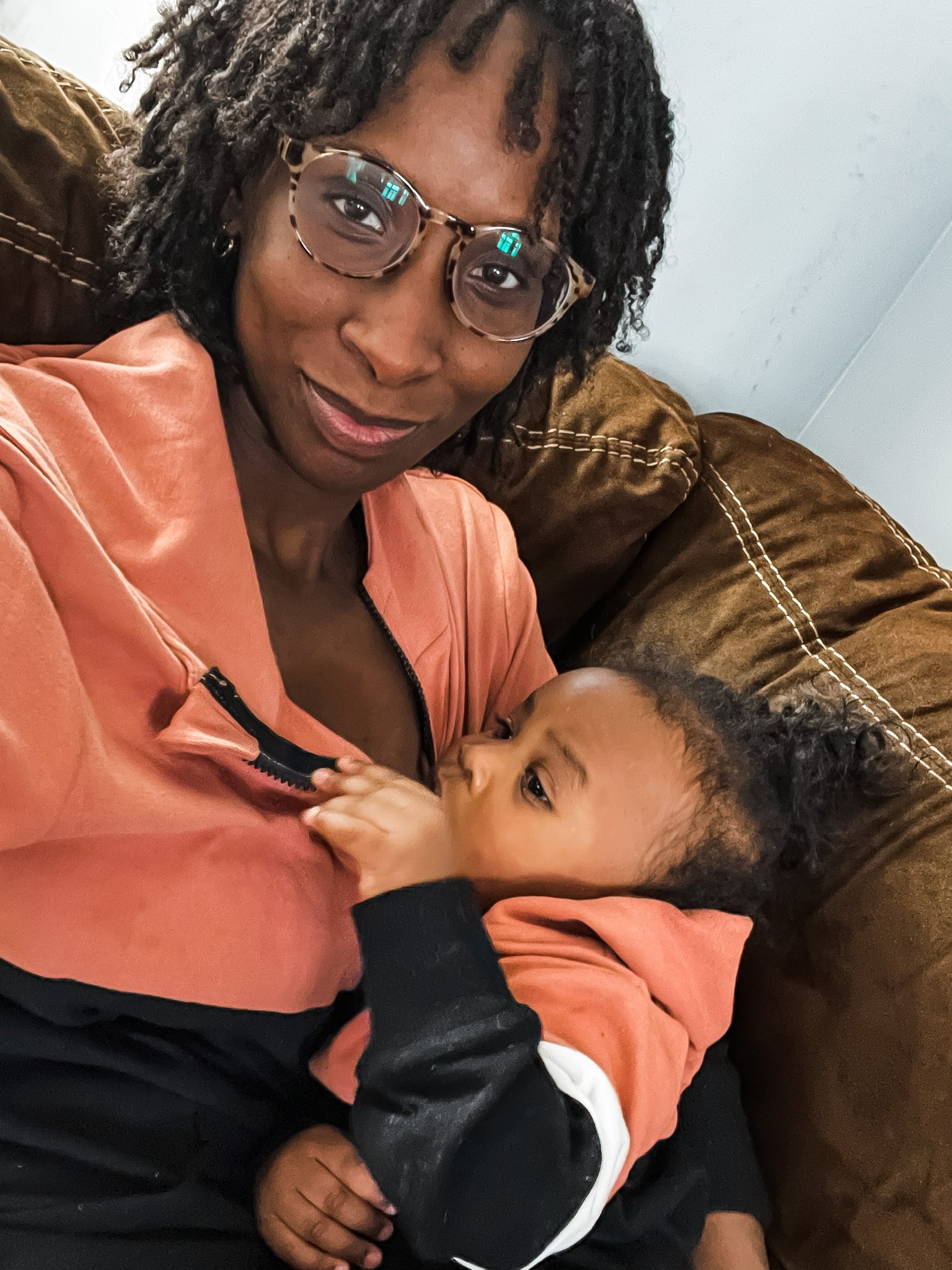3 Myths About Breastfeeding Toddlers
As a practicing postpartum nurse and lactation consultant one of the common phrases I hear when speaking to patients about their breastfeeding goals is “I’m stopping when they have teeth”. As the CDC and WHO both recommend breastfeeding for a minimum of 6 months, past the first tooth eruption of most babies, I figured we should dive head first into 3 myths regarding breastfeeding toddlers. Let’s go!
Myth #1 A toddler that nurses with teeth is a toddler that bites
This is one of the biggest myths out there! In order to tackle this one we have to understand what happens to the mouth while a baby is nursing. In order to nurse effectively, a baby needs to be able to extend their tongue over the lower gum line. A baby, or toddler, who is actively nursing has a harder time biting because their tongue is covering their bottom teeth. If a toddler gets distracted while nursing and stops, hello teeth! Sometimes as teeth start coming in, toddlers can experience pain, and find it soothing to nurse often. This can lead to their teeth grazing sensitive parts of your nipple, causing pain. There is also an outlier for every scenario, some kids find biting funny. In order to over come this, there are a couple things that you can do. Try removing distractions, limiting large reactions or letting them know that this is the time to eat not to play if they do graze you. You can give infants items to help soothe their gums. Now is the time to return to the basics, pay attention to your positioning while nursing, ensure a nice deep, minimally painful latch and don’t forget your nipple care as well. Remember, like all humps in nursing, this is temporary and does not have to ruin or stop your nursing relationship.
Myth #2 Toddlers can’t have breastmilk & solid foods
Call me biased but I would consider breastmilk the ultimate ‘super food’! What other food changes its nutritional components and value as you grow. Talk about meeting you where you are! As babies grow into toddlers breastmilk continues to be a valuable part of their diet. Together with solid foods your toddler is able to achieve a well balanced diet. Many times we think that a child HAS to be switched to cows milk upon turning 1, this just isn’t the case. If it helps to restructure your brain (I know I needed to) think of breastmilk for a toddler as that milk intake switch we think has to happen (its not the same but I feel like it helps our brains process the value of breastmilk for toddlers). To dive deeper lets get scientific. Research shows that in the second year of life (12 months - 23 months) breastmilk provides:
29% of energy
43% of protein
36% of calcium
75% of vitamin A
76% of folate
94% of Vitamin B12
60% of Vitamin C
So you see breastmilk still packs quite the nutritional punch in the second year of life! Solid foods are very important nutritionally and socially for toddlers but, dont sleep on breastmilk. The benefits don’t just end at that huge 1st bday party you threw for your kiddo
Myth #3 Toddlers who breastfeed are more clingy than toddlers who don’t
Now this one is an interesting concept, the idea of ‘clinginess’ in children. I’ll start with my personal philosophy which will govern how I respond to this myth. We carry these babies for almost a year and expect them to go through life alone. The idea that needing love, cuddles, or support is ‘clingy’. I just don’t think that babies can be clingy. I believe they seek out comfort and safety. Nursing a baby or toddler is absolutely comforting to them, they are close to you, they feel safe, they hear your heartbeat, they can smell you… all of these things contribute to an overwhelming feeling a safety. Now based on personality some kiddos might need more of this than others. It’s not nursing per-say but the child. Some kids will also find other objects that they find comfort in. I don’t care how old you are, you have attachments. Let’s give these kids a break. Ok now research… A child who breastfeeds until they self wean (usually 2-4 years … lol stop rolling your eyes) is generally more independent and more secure in their independence as they have received that comfort and security at the breast. Like readiness for potty training, it’s something that children will move on from eventually. Now the caveat is that there is another person in this nursing relationship and that’s YOU! Don’t forget yourself in the decision to stop breastfeeding.
So there you have it! The truth about these myths. Which one surprised you the most? Always remember that the best decision is an informed one and at the end of the day, you must make the best choices for YOUR family. No one else matters. Also remember that although rooted in science non of this is medical advice and you should also consult with your healthcare team collaborating in your and your child’s care.




